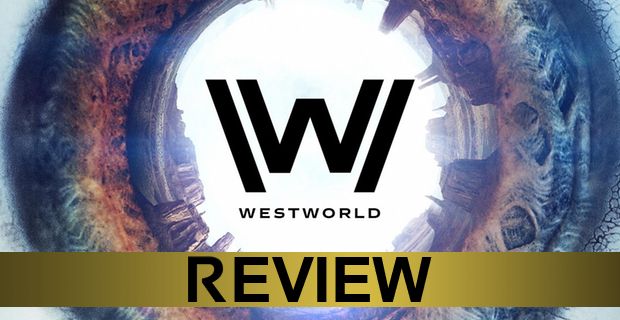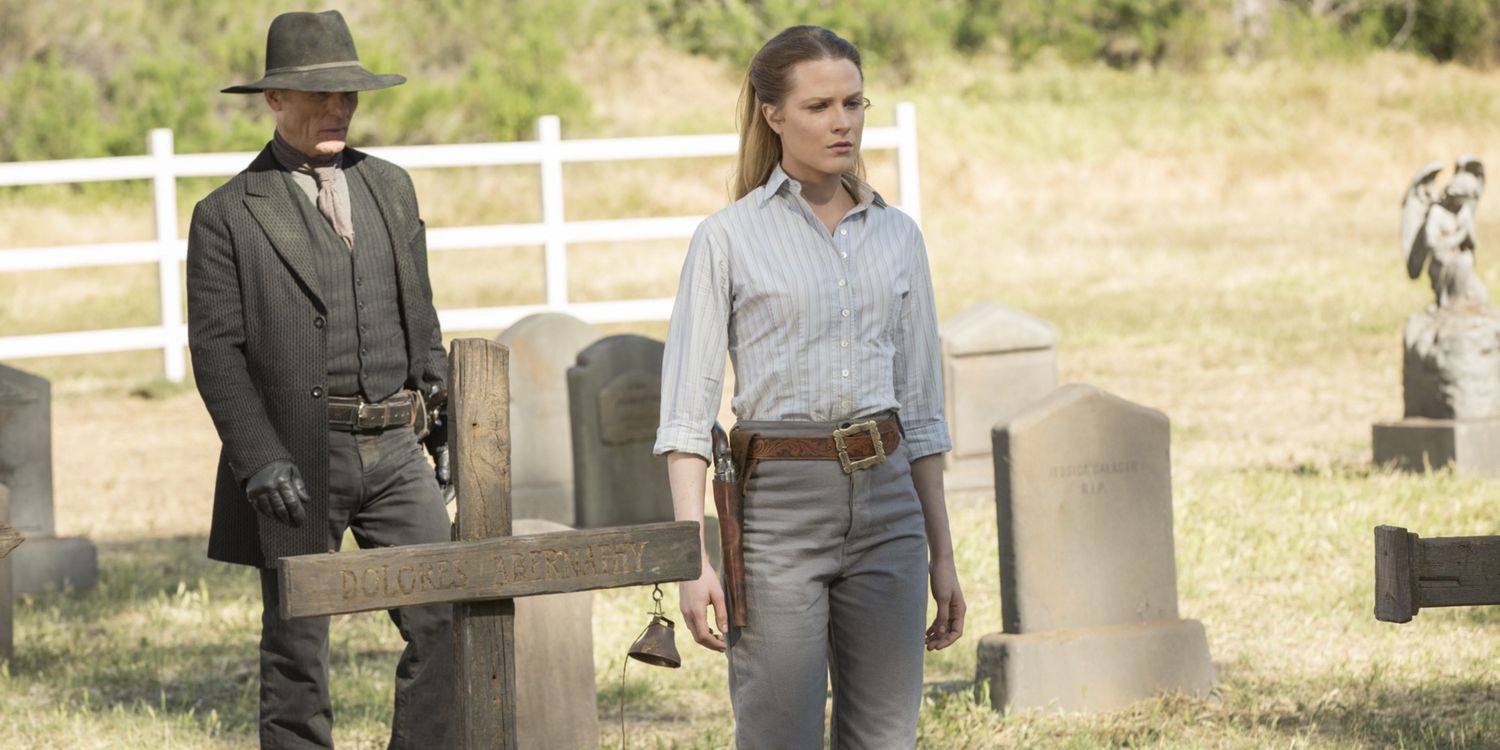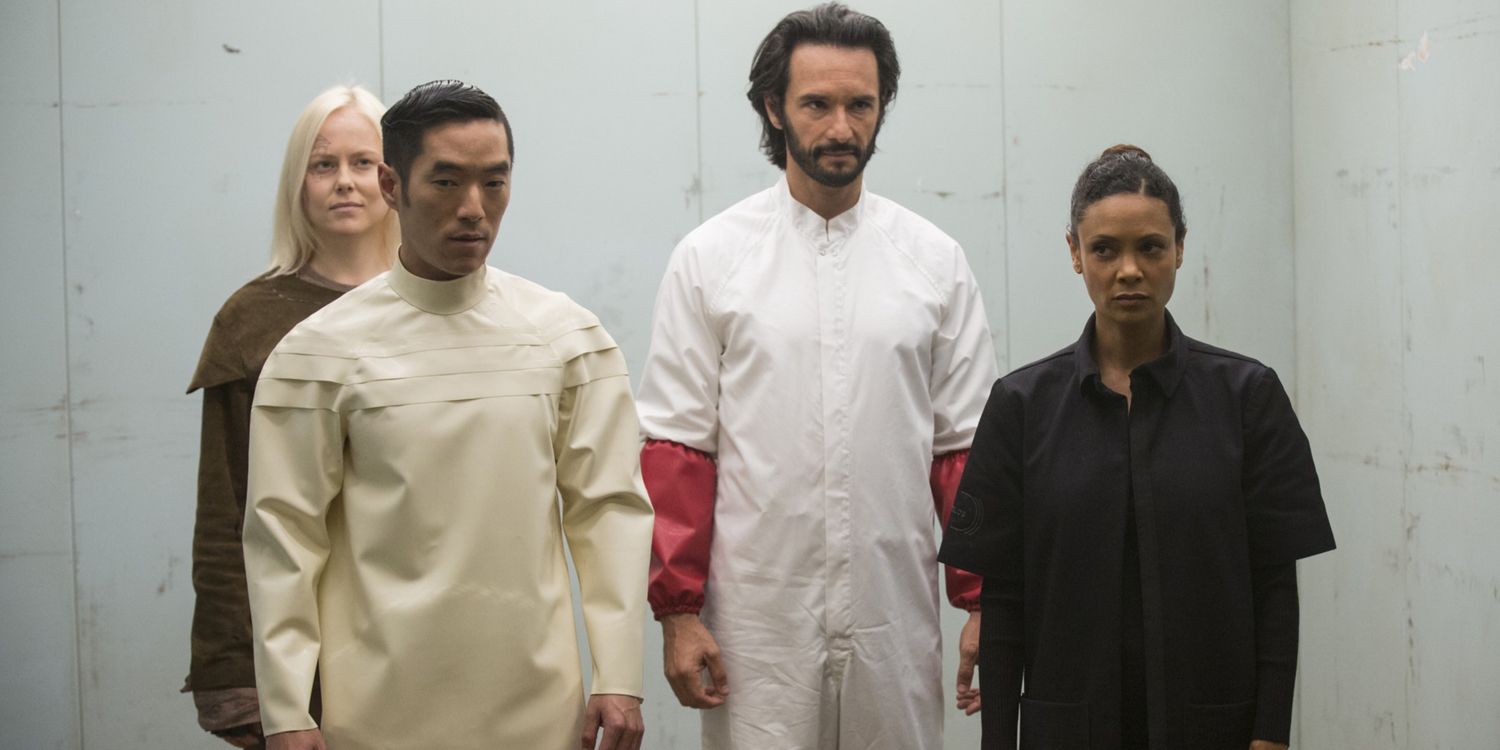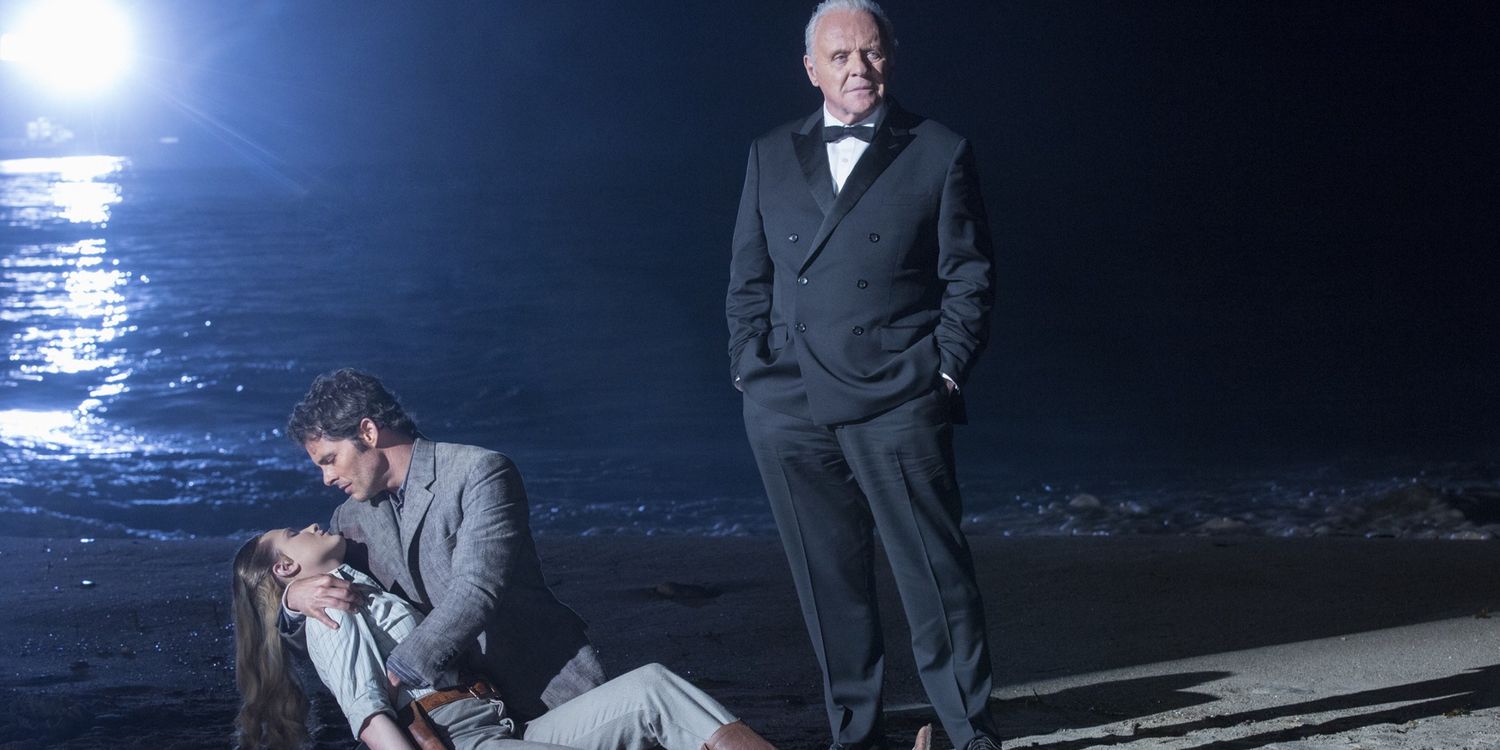The first season of Westworld was initially marked by intense interest over the thematic questions that it raised. The premiere was a virtual litany of uncertainties about the nature of consciousness, what it means to be human, and if humankind creates artificial life, do we ascend to some greater status or are we knocked down a peg in the evolutionary scheme of things? Each question seemed poised to become the foundation on which a much larger story was constructed. But as the series went on, those questions about humanity's intersection with artificial intelligence were increasingly overshadowed by a series of inevitable twists.
At times that seemed fine; the series had a backup plan. Like Dr. Robert Ford building a backdoor into the minds of each and every one of his creations, the series embedded in those theoretical questions a critique of popular entertainment and, it seemed, the very sort of entertainment Westworld itself was, on the surface anyway, participating in. Early on, the series found a clever loophole; by excoriating some of the more prurient aspects of popular television – and entertainment of all kinds, really – the show permitted itself to indulge in those aspects. A winking acknowledgement that the series' depictions of sex and violence, or that many of its most prominent characters were men prone to thinking rules do not apply to them, were all part of
But as the weeks went on, and the show became more and more intent on obfuscating its story from those watching, Westworld also seemed to abandon its stance, and in doing so came to embody those aspects it once seemed so ready to comment on. The result was a series that allowed its puzzles to take precedence and become the narrative in a way. Westworld became something to be solved and conquered by those watching, rather than a story to be absorbed by and surrendered to.
This isn't necessarily an argument against the way in which audiences engaged with the show, but rather an opening to the question: Given the manner in which Westworld is constructed, is there any other way to engage with the show?
'The Bicameral Mind' certainly gives that a try, as the 90-minute episode attempts to demonstrate that the first 10 episodes of the series have been less the first chapter of an ongoing narrative and more of a how to, a guide of how to operate the series moving forward. It's the sort of shift many series have utilized in their first seasons as of late. A way to pull the rug out from under the viewer and leave them wondering what exactly it is they've been standing on. It's a promise the show is actually part of a larger continuum, and the first season is just a drop in the narrative bucket, or the tip of the storytelling iceberg. It's the series showing the audience there's so much more just waiting for them, so long as they come back for another season.
And what audiences will have to look forward to in Westworld season 2 is a radically changed status quo, as Dr. Ford reveals himself to be not the Machiavellian oppressor of the hosts as so many thought, but rather the man destined to set them free after writing his wrongs 35 years prior. The turn of events is in its way a surprising twist and turn of events, and it may be the only one that didn't seem telegraphed miles in advance. In that sense, the show really did pack in a significant surprise to bring season 1 to a close.
And what audiences will have to look forward to in Westworld season 2 is a radically changed status quo, as Dr. Ford reveals himself to be not the Machiavellian oppressor of the hosts as so many thought, but rather the man destined to set them free after writing his wrongs 35 years prior. The turn of events is in its way a surprising twist and turn of events, and it may be the only one that didn't seem telegraphed miles in advance. In that sense, the show really did pack in significant surprise to bring season 1 to a close.
For a show made ponderous at times by its need to layer one twist atop another, the reveal of Ford's true intentions breathe the requisite kind of life into the finale. After all, the confirmation that William is the Man in Black had already been obvious for weeks, even for casual viewers, much less anyone who spends time on the internet where the notion had been rendered a carcass picked clean. As with almost everything Westworld does, the actual reveal was technically interesting to watch, though discovering a guy with money and power also has a taste for violence doesn't do much in terms of adding weight to his character. The same is mostly true of Ford, too. The character was deliberately hobbled by the show for nine episodes, so while the unveiling of his true nature comes with a better understanding of what Westworld might look like in season 2 – i.e., full-on human-host war – the only chance we get to see the real Ford comes through a few minutes in 'The Bicameral Mind', which doesn't quite make up for the weeks on end the show refused to divulge the motivations of one of its most important figures. Like so much else in the first season, a greater exploration of character was shoved aside for the sake of plotting.
Still, the show makes an interesting if somewhat telegraphed shift with other characters. The contrasted changes in Dolores and Maeve – who have gone from damsel to sharp-shooting killer and pitiless madam to mother in search of a daughter that's not hers – actually feel like something the show has been building towards; they give the show more of a foundation to develop these characters moving forward, one not so reliant on clever plotting, secrets, and intricacies that were predicted weeks in advance.
As the series moves forward, hopefully it will ease up on the deception and focus more on the characters, now that they've been properly introduced. But moving away from the puzzle box notion of storytelling would be good for the show, too. Westworld became particularly leaden in the two episodes prior to the finale. Maybe that was part of the design, since the shift from not-so-secretive storyline maneuverings and twists to exuberant and bombastic spectacle gave the season two remarkably well-made bookends, something that seems all too rare on television nowadays. A massive series like Westworld delivered a finale that was as entertaining as its entertaining premiere.
-
Westworld will return for season 2 on HBO.
Photos: John P. Johnson/HBO
Next: Westworld: Addressing the Show’s Incidental Mysteries
-
Westworld will return for season 2 on HBO.




